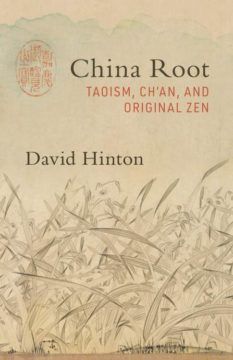Leanne Ogasawara in the Asian Review of Books:
 Buddhism would undergo profound changes as it was transmitted from its origins in India east into China, in the first century CE. Terminology had to be assimilated, for one thing. And when one language is translated and assimilated into another, it is inevitable that some conceptual connections will be lost and the meaning of ideas altered. Take Zen Buddhism. In his latest book, David Hinton says that we in the West are not just once-removed from the original Zen—but twice removed. This is because the Zen we know from Japan had already lost much of the original Daoist underpinnings of Chinese Zen—known as Chan—even before the religion traveled across the Pacific to America.
Buddhism would undergo profound changes as it was transmitted from its origins in India east into China, in the first century CE. Terminology had to be assimilated, for one thing. And when one language is translated and assimilated into another, it is inevitable that some conceptual connections will be lost and the meaning of ideas altered. Take Zen Buddhism. In his latest book, David Hinton says that we in the West are not just once-removed from the original Zen—but twice removed. This is because the Zen we know from Japan had already lost much of the original Daoist underpinnings of Chinese Zen—known as Chan—even before the religion traveled across the Pacific to America.
As it is generally understood, as early thinkers in China grappled with the new philosophy from India and struggled to work out issues of localization, it was only natural that things would be reinterpreted through the lens of the native belief system—in this case, Daoism. While Hinton is not the first thinker to posit a strong influence of Daoism on Zen, he argues that in addition to the issues of translation, there were elements of the new religion from India that resonated strongly with the native Daoist belief system. It was, in other words, a match made in heaven.
More here.
